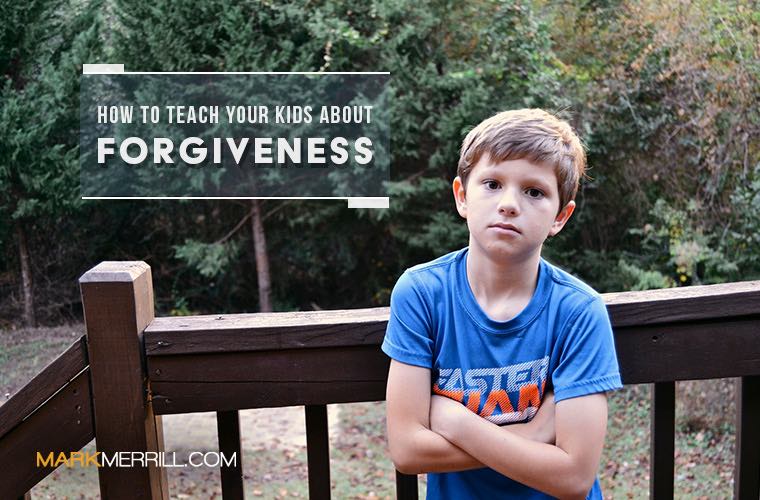Love may make the world go round, as the old saying goes, but it’s forgiveness that oils all the moving parts. Because we live in an imperfect world, with imperfect people, learning how to ask for forgiveness is one of the most important lessons we can offer our children.
But it’s not one we teach very well, often. Think about this childhood scene that may be all too familiar to you—either because you were in it when you were younger, or you’ve been there recently as a parent.
Two kids have a falling out because one mistreats the other in some way. The perpetrator’s mom insists he says he is sorry. He forces the words out through clenched teeth, but he doesn’t mean them. The victim’s mom then requires her child to tell the other that he is forgiven. Once again, the words are muttered begrudgingly but there isn’t an ounce of truth in them.
Now, the above scene isn’t all that bad, but what has it really taught either child about forgiving others and not doing it again?
Perhaps there’s a better way to nurture your children’s conscience and help them learn important lessons about right and wrong, responsibility, and repentance. When your child next acts wrongly in some way, remember The 3 R’s of Discipline, and try the following approach.
Review what happened with them.
Ask them to explain what they did and why. Before rushing to tell them where they went wrong, try to understand their perspective. Perhaps they feel justified in some way. Your questions might help them see more clearly where they were wrong.
Discuss the impact.
Talk about what happened and what the results were—for the person they wronged and for the relationship between the two of them. Talk about why that matters. Explain why and how what they did was wrong. You’re looking for them to own their error.
Share from your own life experience a time when you were in the wrong, how you had to apologize and put things right, and what that felt like.
Talk about what you learned and how you grew through the experience.
Separate the person from the behavior.
Be sure they know that you are not rejecting them, that your love is not conditional upon them “being good.” This gives more room for them to accept responsibility for what they did.
Apply appropriate consequences for their actions that underscore the seriousness of what they did.
To help them appreciate the fairness of this, you might ask them what they think someone else should do if they wronged them the same way. Make it clear your actions are more about training them to do the right thing next time rather than merely punishment for what they just did wrong. This is part of what has been called Disciplining With Honor.
Require them to apologize even if they still don’t feel like it, after they have had time to reflect.
Explain that it’s important to do the right thing even when you don’t want to. Sometimes feelings follow actions: good habits are formed by repetition, just as bad ones are. You can coach them with these steps in How to Ask for Forgiveness.
Differentiate between conviction and shame.
A tender conscience is one of life’s great assets, and it is easily squashed by a parent’s heavy-handed treatment. Be sure to help your children understand that a bad choice or bad action doesn’t make someone a bad person. If they struggle with having done the wrong thing, keep in mind these 7 A’s to Help Your Kids Overcome Failure.
Affirm your love and commitment to them.
Tell them that you are confident they will learn from this situation and that they will make good choices in the future.
Admitting we were wrong can still be hard when we get older, but it’s an important skill to develop. What would you add to this list for teaching your children about forgiveness? Share your answers below.
For more help teaching kids good character, check out the free resources and calendar for Building Good Character Traits for Kids at iMOM.com.



